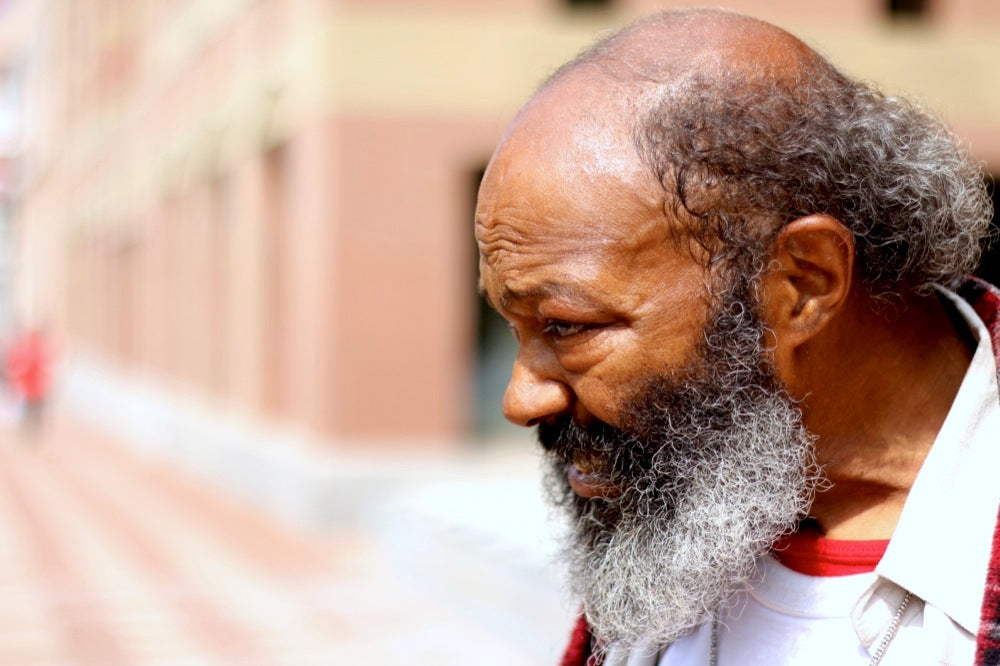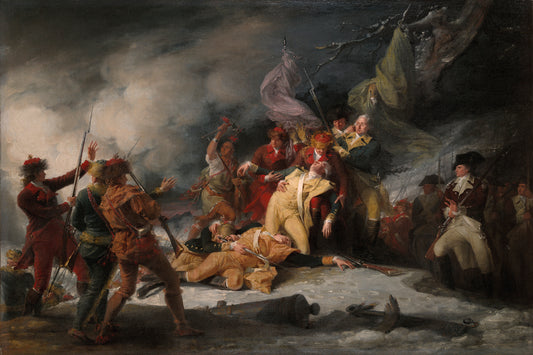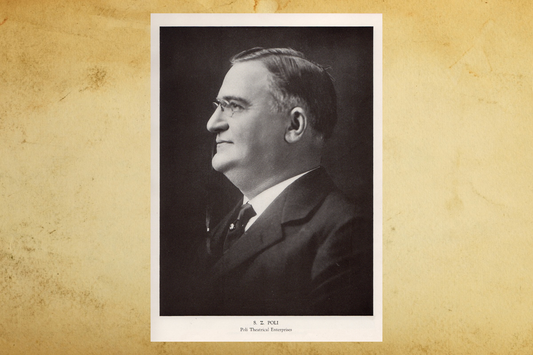Frederick David Watts isn’t pleasant to look at. Nor is he pleasant to ignore. Homeless, he walks the streets of New Haven wearing a patterned bathrobe and a wild white-framed beard, carrying his belongings in plastic bags. His eyes jut out at different angles and at times he’s seized by fits of laughter. On occasion he seems to speak in tongues. Sometimes he proclaims, with schizophrenic-like zeal, that he’s penned great works of poetry and studied at Yale and Harvard.
Surprisingly enough, that last claim is true. And while Watts’s afflictions have corrupted his appearance, and sometimes his personality and intelligibility, they’ve left his Ivy League lexicon, and more than a little of his poetic wit, intact.
Born in Jamaica, Queens, in 1950, Watts attended Yale College and graduated with the class of ’72. He went on to study English at Harvard with every intention of becoming a serious poet. Then, a year into his program, he was rocked by mental instability. Fighting to keep an even keel, Watts took a year off. He worked briefly as an au pair for Laurence Tribe, a renowned constitutional law professor, who remembers Watts fondly as a “kind, gentle and intelligent soul.”
sponsored by
Watts would return to Harvard, but he would never graduate. For the past forty years, he’s bounced between street, court and asylum, writing poetry all the while. He’s also maintained contact via post and email with Philip Falcone and Sarada George, high school friends of 50 years. George has sixteen of Watts’s poems dating from 1972 to 2006, with scraps from as recent as 2013. Watts claims to have written more than a hundred, some perhaps confiscated by law enforcement, psych ward attendants or pitiless street winds.
Watts’s poetry bears strong resemblance to the poetics of 18th-century Britain and, not surprisingly, he names the eccentric William Blake among his most important influences. Though Watts’s verse is old-fashioned, it functions well with parts both modern and antique. He makes allusions to Greek gods and elementary particles, and fashions surreal, lyric gestalts from mundane occurrences, like this one: “the croquet ball / Sailing through a last, impossible wicket, / is a meteor to honor / The natural burial of a cricket.”
His stylistic skill is accompanied by genuine insight and heartfelt confession. Watts writes compellingly, at times self-critically, about the subjects of love, fate, authenticity and poetry, among others. Madness is conspicuously absent from his verse. Of his poetry Watts says, “My goal was to restore the English singing line: melody, wit and speech. I accomplished that.” While that’s up for debate, the debate would be legitimate. His poems deserve a proving ground, and the attention of more careful scholars.
sponsored by
Today Watts can be seen walking past the gothic arches where he’d once studied, resting on the stoops of Elm Street, and around lunchtime, is wont to wander the bricks outside town hall where he’s known by hotdog-cart men and security guards as “The Professor.”
Listen to him talk and it’s clear why. His speech, like his poetry, is extravagant. While Watts believes he always speaks clearly, his words are often garbled by mental illness and missing teeth. Frustration at not being understood rouses his scathing wit: “Do you have wax in your ear or do you have a learned disability?” According to George, these curt remarks are a feature of his illness. “When David is in his ‘right mind’ he is invariably polite,” she says.
In moments of clarity, his courtesy rings clear. “I’ve been a social outcast most of my life … but I’ve retained my dignity and have been helped by others an awful lot.” As one of our interviews ended, he took the last of the breakfast I’d bought him, saying, “Thanks for your help. In all sincerity.”
Yet those who know Watts well say these moments are becoming scarcer. His illness has been gaining ground. His laugh has become strange. He makes inappropriate statements. He refuses to take medication. He declares himself cured. At times he’s paranoid and accusatory, rude and scornful even toward those working hardest to help him—people like Jim Farnam, a local consultant who works with nonprofits and community initiatives, and an acquaintance of Watts’s for about eight years.
According to Farnam and others who know him well, Watts incessantly calls friends to make demands or ask for loans, often overtaxing the charity and goodwill of his benefactors and leaving a trail of burnt-out friends behind him. But left to his own devices, Watts often falls into the machinery of the court system for minor infractions. The court deals with him either through expensive incarcerations and hospitalizations or frugal disregard, simply releasing Watts back onto the street.
Watts’s friends seem to agree that he needs not incarceration or free reign but treatment and management. And while their years of efforts to help have been stymied by Watts’s insistence on independence, there are moments when he seems to see it their way. Asked if he was happy with his life, Watts laughed and said, “No. Not at all… Living alone is not good for me or society.”
While Watts is solitary, he’s not alone. According to a report published in 2006 by the Bureau of Justice Statistics, up to 65% of American inmates have symptoms of serious mental illness. Decades-old deinstitutionalization trends coupled with low political will to devote community resources to addressing mental health has turned prisons into storehouses for the mentally ill. Watts is one of hundreds of thousands nationally cycling through justice systems instead of mental health ones.
In Connecticut, involuntary commitment is illegal unless an individual is an immediate danger to himself or others. Watts doesn’t seem to be either, but his situation has moved many to seek a solution. So far, none has emerged.
For now, Watts continues wandering the streets in his bathrobe, showering people with colorful verbal constructions, at times courteous, at times obscene. He occupies the limbo of the struggling artist, but with neither the romance nor the rags-to-riches prospects—though, for some, the story of his life might be an achievement in itself, a dog-eared, moving entry in the anthology of the city.
Written and photographed by Daniel Shkolnik.









